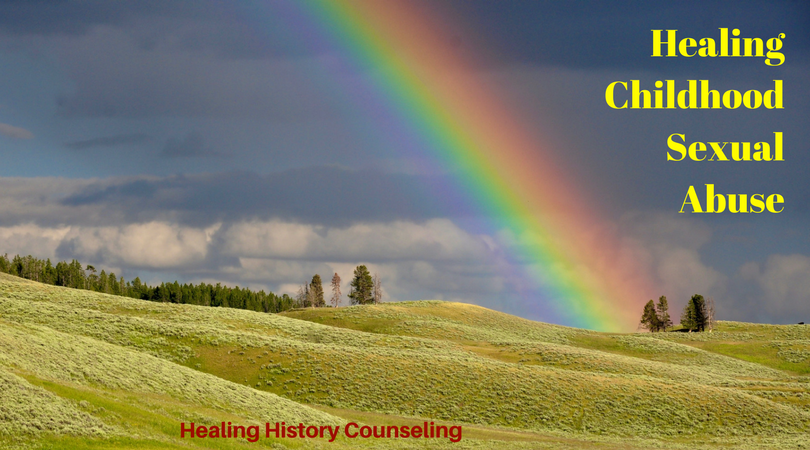

Healing CSA: 10 Ways to Let the Good In
Many people struggle to accept compliments. For some it is because they are humble and feel uncomfortable in the spotlight. For others it is because they don’t believe any positive words that are said to them. Growing up hearing hateful and negative words used against you by the very people who are supposed to be helping you develop a healthy and positive self-view can have a devastating impact on your life long ability to see the good in yourself.
We build our beliefs about ourselves when we are children. It is from our parents, and other important loved ones, that we receive our most powerful compliments and insults. What they tell us about ourselves is taken as truth, as fact. We internalize what they say, and it becomes the foundation on which we build our beliefs about and feelings for ourselves. If there is little or no positive affirmations to counteract or mitigate those hateful words they become how we see ourselves.
Adults who grew up in such toxic environments can struggle to see themselves in any kind of positive light. Someone who believes, deep down in their bones, that they are no good or bad will not believe that they are capable of great things or worthy of loving attention. They will stifle their dreams and bury their hopes. They will often not even try to achieve many things that they could well succeed at because of their lack of faith in themselves. They may push away love and friendship because they believe that if those people really saw “who they really are” they would leave. Or they may desperately clutch onto friends and partners because they expect to lose them at any moment. These internalized beliefs about our selves need to be challenged, evicted and replaced with more accurate and realistic awareness of our own strengths and challenges. Here are some ways to start building a healthier more accurate self-opinion and start being more accepting (or at least less rejecting) of others good opinions of us.
4 Steps to Challenge Your Opinion of Yourself
(which will help you let compliments in)
- Notice & Question: We cannot change what we are unaware of. We must first become aware of how we speak to ourselves and then we need to stop taking it as gospel. Just because you heard it doesn’t make it fact. Even if the person who told you was your parent or loved one. Once you start hearing your negative self-talk ask yourself how you “know” this to be true. Who told you? What made them an authority? Would you believe this for anyone else (this one’s important because we will often believe stuff for ourselves that we will dismiss as ridiculous for anyone else)?
- Learn about healthy parenting: Since most of our extreme negative self-beliefs come from our parents or care givers; we need to know their expertise and skill as parents. Were they loving? Were the rules reasonable and consistent? Were they supportive and encouraging? Did they disciple without harshness or harm? Did they treat you with respect and kindness? We need to know this because their skill as parents adds or detracts from the weight of their words… Cooking advice from someone who got an F in “boiling water” and kicked out of culinary school caries far less weight than cooking advice from the head chef at a 5-star restaurant. If you don’t know what healthy parenting looks like, do some research. Give your parents a grade based on their skill. If your parents were C, D, or F parents then you need to remind yourself of this each time you judge yourself based on their previous statements.
- Compare to an Avatar: Most people with extremely negative self-opinions can find little or no compassion for themselves. They have swallowed their parents’ opinions and can’t easily cough them up. But often when they apply these beliefs to some other child they can clearly see the flaws and lies in those statements. Imagine a child the age you were when you can first remember your parents telling you hateful, negative things about yourself. I picture a little girl, maybe five. She has lots of wavy brown hair and a smile from ear to ear. I look at her and know “your worthless”, “It’s all your fault”, and any other of numerous other hurtful harmful statements just can’t be true. That little girl isn’t to blame. That little girl isn’t rotten or bad. So, if I know it for her, perhaps I can hold the possibility for myself too. You may hear a “yeah but” in your head: Yeah, she’s not to blame but I’m the exception. I don’t qualify for that understanding and compassion because… Really? These “I’m the exception to everyone else” statements are usually a good indication that the belief is an internalized hateful message that was taught to you as a child. Just because you’ve always believed it, doesn’t mean it’s true.
- Notice your strengths: Everyone does some things better than others. Our negative opinion of our selves is often built by focusing all our attention on what we suck at. By working to shift our attention to those things we do well we can achieve a more accurate awareness of ourselves. If you are not sure about what you are good at it can be useful to ask a friend. Are you kind, friendly, funny, a good knitter, can cook an awesome meatloaf? Whatever those things are, start paying attention and owning those skills.
6 Tips for letting compliments in
- Opinions vary: Remind yourself that people have differing views and opinions and they have the right to theirs. This is often the easiest first step because it does not require you to challenge your negative self-valuation only remind yourself that others may not agree.
- Only say “Thank you”: Don’t let yourself brush it off or dismiss it as “nothing”. Simply thank them for the compliment. When you first start doing this, it can be an internal battle to not verbally push it away or denigrate what you did. With practice, it will become less difficult and even easier.
- What’s their authority: What weight do their words have? Are they someone you respect (more weight), a friend (more weight because they see something in you worth befriending), an expert in the area of the compliment (If a head chef at a 5-star restaurant compliments your cooking – that has weight), etc. Even if the person has no authority behind their compliment, refer to tip 1 and 2.
- Remember your skewed perspective: If you know you were raised in a home of insults, hurtful & hateful statements, and derogatory putdowns; then you, most likely, have a skewed view of yourself. Remind yourself that your point of view may actually be the twisted one and that maybe, just maybe, the other person is more accurate in their perspective.
- Fake it Till You Make it: It works. Pretending that you believe and accept the positive things said to you helps you shift your beliefs. Ask yourself how you would respond if you believed the compliment and do that.
- Heal the past hurts: Many people find that the most effective way to resolve a deep negative self-opinion is to go back and heal the pain that still remains from those negative and hurtful childhood experiences. When you can resolve your past pains, it is easier to challenge and change your views of yourself.
Not being able to believe or accept compliments can be a symptom of a deeply negative self-opinion. Belief that you are bad, no-good, worthless, or always messing up often comes from an unhealthy or toxic childhood. When our parents, or other close care-givers, are constantly filling our young minds with hurtful, hateful, and negative statements about our worthiness, lovability, abilities, and intelligence we grow up thinking that these statements are truth and accurate. Just because this was how you were raised, doesn’t mean you can’t change and heal. You deserve to see yourself honestly and accurately. Just because this is what you were told, doesn’t mean it was true. It is possible to heal from the self-hate created by a toxic childhood.
I am a therapist in Austin Texas. I specialize in helping adults heal from difficult childhoods, childhood trauma, CSA (Childhood Sexual Abuse), sexual assault, PTSD (Post Traumatic Stress Disorder), and cPTSD (complex PTSD). Contact me to schedule a free 30-minute, in person, consultation to discuss how I can help you heal deeply rooted negative self-opinion and come to like yourself more.
Thank you.
I’m glad you found this helpful.